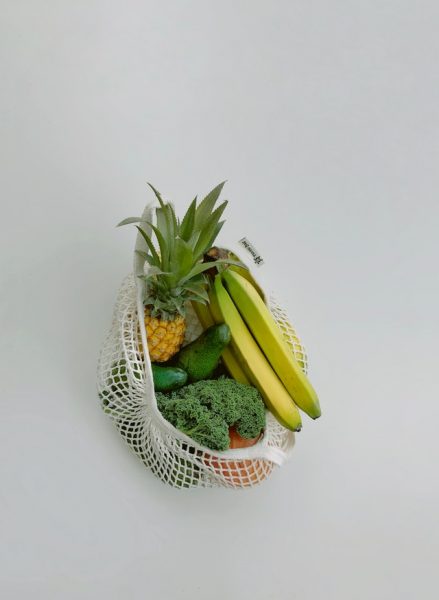You’ve probably heard it from your mom a thousand times before: always wash your fruit and vegetables.
Maybe you’ve been rinsing your fresh produce since you were a kid, but you’re not sure why and suspect it’s just an old wives’ tale – like bundling up warmly to avoid getting the ‘flu or not cracking your knuckles because it’ll give you arthritis (both are untrue).
Here’s the thing: you should be washing your fruit and vegetables before eating them. So, crack out that vegetable scrubber and read on to find out why.
Why You Should Wash Fresh Produce
Although cooking temperatures kill many pathogens, all fruit and some vegetables are usually minimally processed before being eaten raw – that is why they pose some safety concerns.
Vegetables, fruit, and unpasteurized juice can contain dangerous bacterial pathogens such as Salmonella, Listeria monocytogenes, Campylobacter, and Shinga-toxin-producing strains of E. coli.
In 2011, Germany saw the largest outbreak of hemolytic uremic syndrome. More than 4,000 people suffered from diarrhea and headaches, 800 had complications like acute kidney failure, anemia, and low platelet counts, and more than 50 people died. The cause was Shinga-toxin-producing E.coli – which is frequently associated with fenugreek sprouts and other fresh produce.
Other contaminants include foodborne illnesses like norovirus –one of the most common foodborne outbreaks – leading to unpleasant symptoms like vomiting, abdominal pain, and diarrhea.
You’ll also find more obvious contaminants on your fruit and veggies, like pebbles, dirt, dust, insects, and pesticide residue. And don’t forget that your fresh produce passes through many hands and environments before reaching your kitchen – possibly picking up all kinds of germs along the way.
The good news is that most foodborne illnesses are entirely preventable.
Not All Cleaning Methods Are Created Equal
Although rinsing your fresh produce under a faucet is the traditional way to wash fruit and vegetables, you may be wondering if just giving your apple a shower with plain water is enough.
You may have heard of some people advocating for more drastic measures –such as washing produce with vinegar, soap, or even commercial cleaning products like bleach. The truth is that health and safety experts like the Center for Disease Control (CDC) recommend sticking to plain water.
Using lemon juice, vinegar, and soaps specifically designed for washing produce is no more effective than using plain water – and in the case of using harmful chemicals like bleach, using it to clean fruit and vegetables is downright dangerous.
While you should only use plain tap water to clean fresh produce, there are better methods to clean them than just giving them a quick rinse, however.
How You Should Be Cleaning Your Fruit and Vegetables
You should wash fruit and vegetables under cool water before consuming them to reduce the risk of ingesting contaminants and pathogens.
Begin all food prep by giving your hands a thorough scrub with soap and warm water for 20 seconds, make sure that your sink, prep area, and utensils are clean, and follow food preparation best practices.
Cut any visibly rotten or bruised areas on your fresh produce away. And yes, you should also wash fruits and vegetables with skin – like oranges, bananas, etc. – even if you intend to peel them. This is to prevent surface bacteria from contaminating the inner flesh.
Leafy Greens
Greens like lettuce, spinach, leeks, Swiss chard, and cruciferous vegetables (broccoli, cauliflower, bok choy, Brussel sprouts, etc.) should have their outer layer removed before submerging them in a bowl of clean water. Swirl them around, drain them, and rinse with more fresh water.
Firm Produce
Firm-skinned fruits (apples, pears, lemons, and oranges) and root vegetables (like carrots, potatoes, and turnips) should be scrubbed with a clean, soft-bristled vegetable brush to dislodge debris and remove residue from the nooks and crannies on the surface.
Delicate Produce
Delicate fruit and vegetables (like berries, mushrooms, and any produce that might fall apart if you clean it too vigorously) should be rinsed under a stream of fresh water. At the same time, gently rub them to remove dirt and other particles.
After you’ve rinsed and scrubbed your fruit and veggies, wipe or pat them dry with a soft cloth or paper towel. Delicate produce can be rolled on a piece of paper towel without causing damage
The Bottom Line
Your mom was right after all – washing your fruit and veggies before eating them has been proven to remove some pathogens and most contaminants and prevent them from entering your body.
Now that you know the correct way to wash your fresh produce, there’s no reason to avoid doing it.


